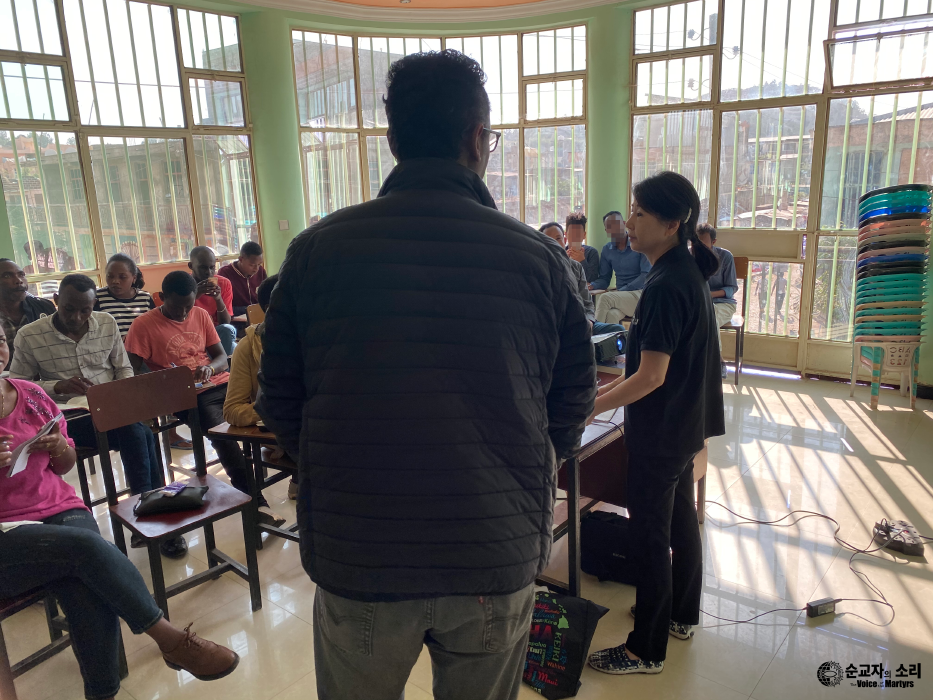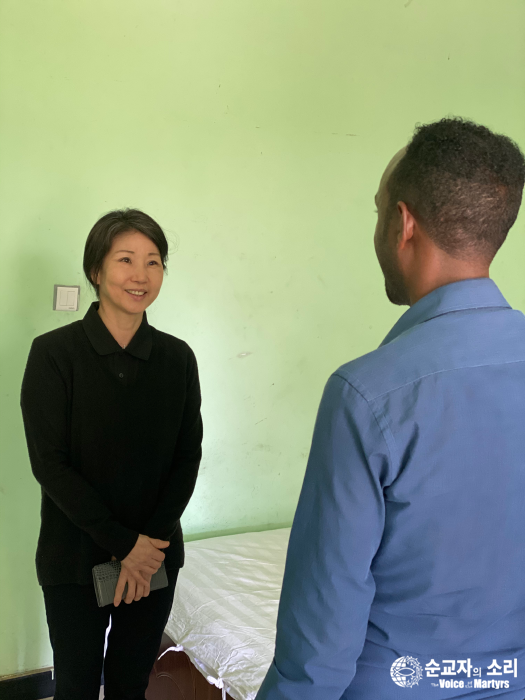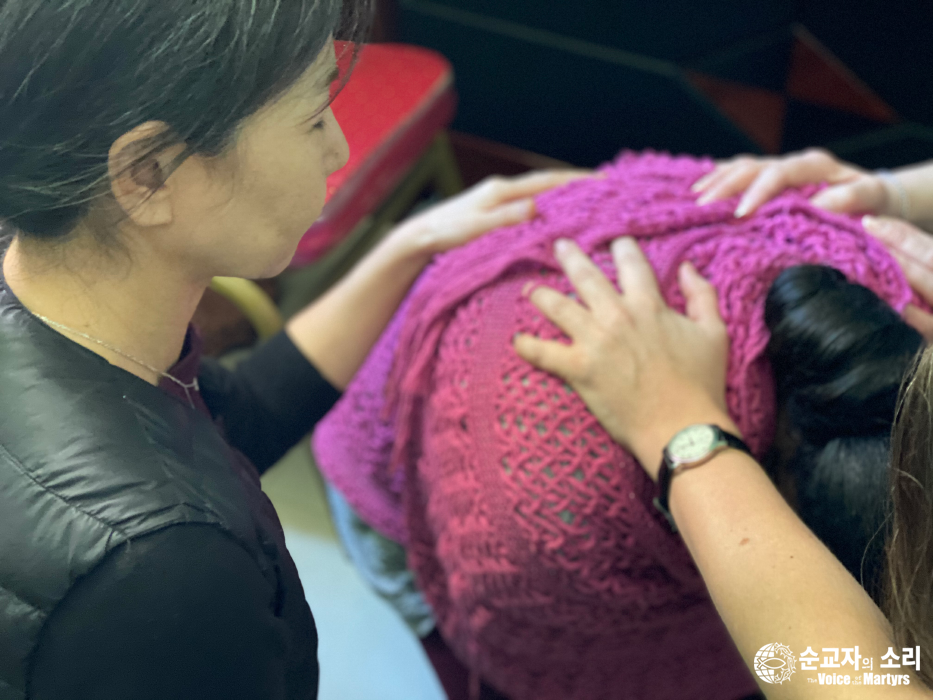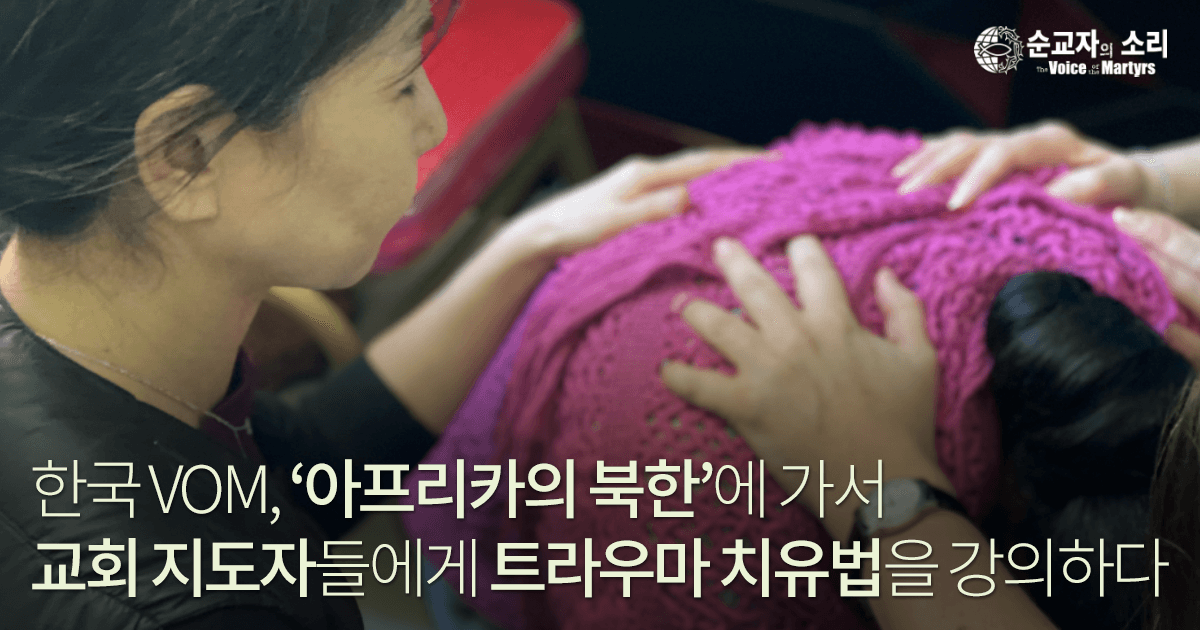
CHURCH LEADERS IN THE “NORTH KOREA OF AFRICA” RECEIVE TRAUMA CARE
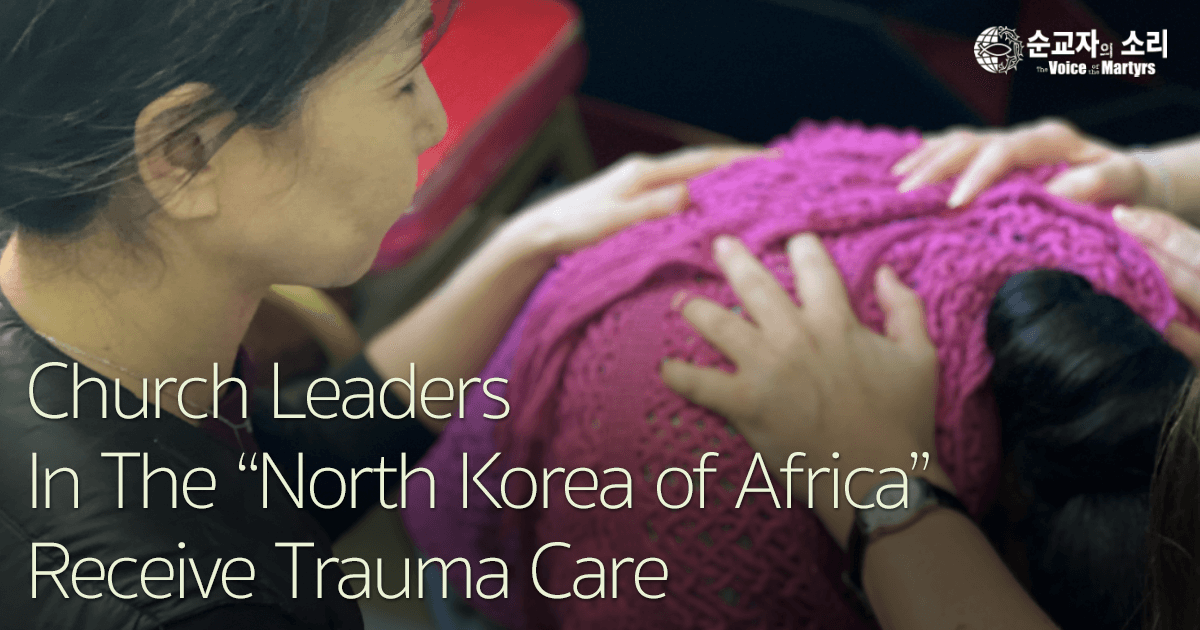
Church leaders from Eritrea received intensive trauma care, as well as training how to deliver trauma care to their congregation members, in an emergency training event conducted earlier this month by persecution ministry Voice of the Martyrs Korea.
“Not many people have even heard of the small country of Eritrea, but it is of special importance to Christians as it has long been one of the fiercest persecutors of Christians worldwide,”
Voice of the Martyrs Korea representative Foley Hyun Sook explains.
“It is often called the ‘North Korea of Africa’ as its president is known to have a fondness for the North Korean model of leader-worship and desires to implement it in his own country.”
According to representative Foley, only four religions are legal in Eritrea, and all four are strongly monitored and restricted. Among Protestantism, only Lutheran churches are permitted. Evangelical churches must operate underground, keeping even ceremonies like weddings and funerals completely secret. Many of Eritrea’s pastors have been imprisoned and tortured for more than ten years. In Eritrea, prisons are located in the hot desert and prisoners are kept in metal shipping containers. Due to the strong persecution against Christians, many flee the country and are living in refugee camps in Ethiopia.
“Some people may recall that the prime minister of Ethiopia won the Nobel Peace Prize in 2019 for opening the border with Eritrea, but what most people don’t know is that conditions in Eritrea have not improved,”
representative Foley says.
“Less than a year after Ethiopia negotiated open borders with Eritrea, Eritrea re-closed their side of the border.”
Some of the attendees of Voice of the Martyrs’ trauma care event had crossed the closed border to attend. Others came from the Eritrean refugee camps in Northern Ethiopia. Altogether, there were 36 attendees, each struggling with deep trauma.
“Many of the church leaders had been imprisoned and tortured for their faith. Some had lost family members. Some left prison with chronic illnesses and disabilities,” representative Foley explains.
“They were trying to reconcile the pain they had experienced with God’s promises for peace.”
Representative Foley tells the story of one widow at the training whose husband had been martyred for his faith. The widow was sent to prison, where she was raped by one of the guards and became HIV-positive. Since being released from prison, she has hidden both the rape and her HIV diagnosis even from her family members out of shame. When she goes to the clinic to get her medicine, she covers her face with a shawl so that no one will recognize her.
“While meeting with her and providing trauma care, we ‘prescribed’ for her to memorize Psalm 34:4-5: ‘I sought the Lord, and he answered me; he delivered me from all my fears. Those who look to him are radiant with joy; their faces shall never be ashamed,’”
representative Foley explains.
“We told her to repeat these verses aloud any time she felt shame. She could see that in overcoming the shame, she could have a powerful ministry to other women in the same situation as her, who are also suffering silently in shame.”
Representative Foley has a masters degree in clinical counseling with a specialization in trauma recovery from Colorado Christian University. She traveled to Cameroon in December to aid pastors there in trauma recovery and has conducted similar trainings for persecuted Christians and the Christian workers who serve them in Belgium and Thailand. Foley says that the church globally must offer trauma recovery as the first kind of care given after Christians are persecuted.
“Until pastors and church members in these countries recover from trauma, they cannot effectively use the humanitarian aid or church building assistance that is usually provided by the global church in the aftermath of persecution.”
Voice of the Martyrs Korea administers a fund to provide ongoing support to families of Eritrean martyrs and Christian prisoners. Churches and individuals interested in making a donation to VOMK’s Eritrea Fund can do so according to the methods listed on the VOMK website at vomkorea.com/en/donation or via electronic transfer to
국민은행 463501-01-243303
예금주: (사)순교자의소리
Please include the phrase “FOM” (for “Families of Martyrs”) on the transfer.
Donations are then tax-deductible to the full extent of the law. If you would like instructions on how to donate through the NHF website, you can follow our tutorial below.


